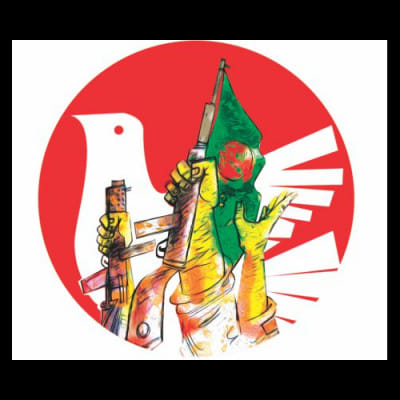MARCH 11, 1971: Standing up to tyranny

“What do you mean by government? I am the government.”
This was Bangabandhu Sheikh Mujibur Rahman's reply when a foreign journalist asked him about challenging the authority of the Pakistan government in the province.
While the non-cooperation movement kept gaining momentum with each passing day, Bangabandhu established across the country that East Pakistan ran under his direct orders.
Earlier when it was rumoured that Yahya Khan was to fly to Dhaka for a talk with Sheikh Mujibur Rahman, one newsman inquired him about whether he would agree to the meeting. His response to that was “If Yahya Khan comes to Dhaka, he will be our guest here,” clearly indicating that Dhaka belonged to the Bangalees.
Under the movement, the High Court judge and administrative secretary, along with many office goers throughout the East Pakistan, resigned from their services.
Agitated civilians put up barriers and created obstacles in the process of procurement of day to day items by the military authorities. In Sylhet, one convoy supplying rations was intercepted by them.
In Tangail's Bindubashini High School field, National Awami Party leader Maulana Bhashani announced his support for the freedom fight. He said Sheikh Mujibur Rahman is the leader of seven crore people and asked the people to follow his instructions. He added that to achieve the goal, all must unite and fight.
Awami League general secretary Tajuddin Ahmed thanked the people of Bangladesh for rallying behind the party and making the civil disobedience movement launched by Bangabandhu a success.
That night, the army enforced its 114 number military order saying that if any civilian, willingly or unwillingly, harms government property or creates obstacles in the work of the military, it will be punishable by law.
Meanwhile, Pakistan International Airlines cancelled most of its international services, and all available aircraft were used to bring “Government Passengers” to Dhaka. These “Government Passengers” were troops in civilian clothes.
In Rawalpindi, the military establishment was now being dominated by an influential quarter of blood-thirsty officers. Top army officials were clearly of the opinion that the Bangalees' movement had to be crushed and Sheikh Mujibur Rahman severely dealt with.
Yahya explicitly warned that force would be used against any move for separation.
But the Bangalees already knew that. And they were prepared for it.
[Source: Liberation War Museum]

 For all latest news, follow The Daily Star's Google News channel.
For all latest news, follow The Daily Star's Google News channel. 




Comments